10 things you need to know about launching a career as an audio engineer
We quiz ICMP tutor Charlie Thomas on his essential advice for aspiring studio engineers…
ICMP has recently unveiled two new music production courses, launched in response to the needs of the UK’s evolving music industry and career opportunities opening up within the worlds of recorded music
Our new Audio Engineering degree offers students the chance to develop an advanced technical understanding of all aspects of sound engineering and music production techniques. They will utilise the latest industry-standard hardware and software to learn essential skills such as studio design, audio signal analysis and live sound reinforcement.
We caught up with our ICMP Music Production tutor Charlie Thomas to learn what it takes to launch a career as an audio engineer...
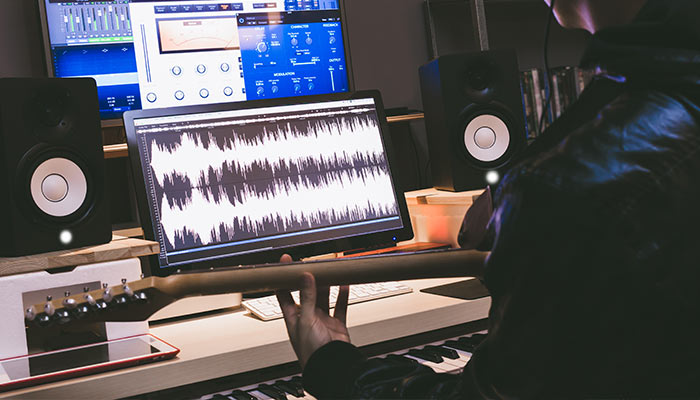
Learn to understand sonics in all forms
Primarily, you’re the person responsible for capturing the performance, whatever that may be, in the best sonic way possible.
You need to understand the acoustics of the live room, the microphones, mic placement, the type of artists and what best suits their style, alongside the general workings of all available equipment, the patch bay and the console.
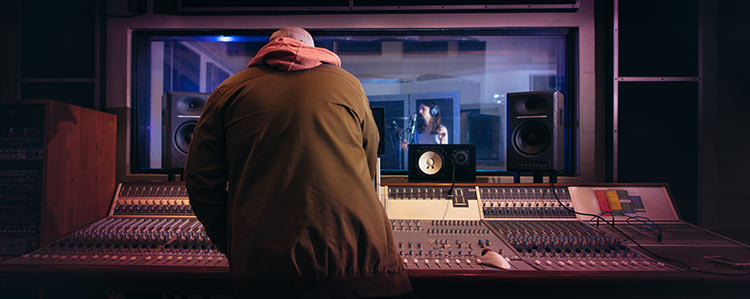
Engineers need to get on with everybody - and get the best out of an artist or producer
Most producers will already have a pretty good understanding of the engineering process and what mics and gear they want to use during a session.
The engineer is there to know the room, make sure the session runs smoothly and the producer goes away happy. In relation to the artist, you are there to make them feel as comfortable as possible to get the best performance."
You are also a representative of the studio. The experience the client has with you is one that reflects on your reputation and the studios.
Get work experience in a studio
Being an engineer in a professional studio will give you the best opportunity to see how others work in the industry. You can be a fly on the wall for writing sessions, mixing sessions, orchestral recordings, vocal tracking and really get to witness how projects come together and how different people approach the process.
Think of it as the ultimate YouTube tutorial, as basically every session will have you learning a new technique or approach, good or bad. It is also common that most engineers end up as producers, mixers, songwriters, or a combination of all three.
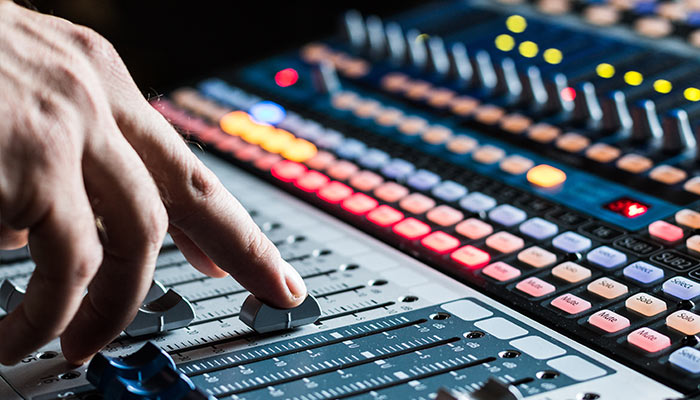
Aim to make things sound good
One of the most underrated aspects of music production is understanding how to make things sound good.
Whether you make sample-based music or live recordings, making a track sonically sound professional is one of the most important things about the final product. As an engineer you learn how to do this better than most.
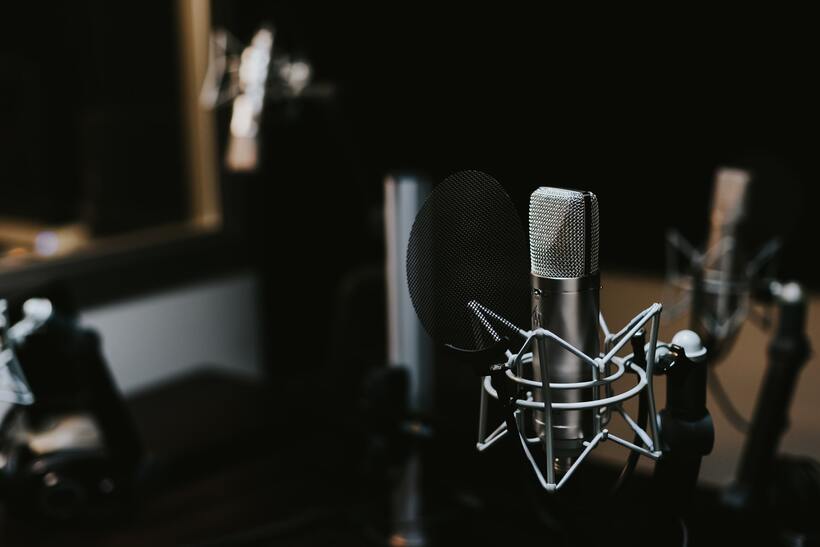
Get to grips with EQ
Every sound is a frequency and EQ is how we shape it. Too much of one frequency and the sound is muddy. Too little of another and it feels hollow.
If you know EQ, you know the fundamentals of sound and how different sounds fit together. This will not only make you a better engineer, but a better music maker in general.
Understand compression
Compressors are all about the dynamics of a sound. They can be used creatively to distort sound, give clarity, balance, tone, and flavour. But they can also completely ruin a performance if you don’t know how to use them. They are a cornerstone of understanding music production and taking the time to learn how to utilise them is essential.
Master Pro Tools
Pro Tools is the tape machine of the modern era. It is in every recording studio on earth and 95 percent of every song made in the last 20 years has gone through or ended up in Pro Tools. Tracks are recorded in it, edited in it, mixed in it and mastered in it.
When I started college 12 or so years ago, the first thing I did was buy my own copy of Pro Tools and practiced on it as much as possible.
I also use most other DAWs too, but mainly for producing up the tracks or writing. When I’m recording, editing or a track is ready to mix, my projects always end up in Pro Tools.
Maintain a session’s creative flow and vibe
Well, the sound, routing signals, using the console and sitting at the computer operating Pro Tools would be the obvious answers.
But for me, the main job is the flow and the vibe.
In a studio setting it's all about how efficiently the session flows and what the vibe is like for everyone on the session. If you run into issues/faults (which will happen all the time) it's about how you handle them. If you keep your cool and fix the problem without it impacting the flow of the session, then the artists will be more relaxed, perform better and the producer will end up with a better product.
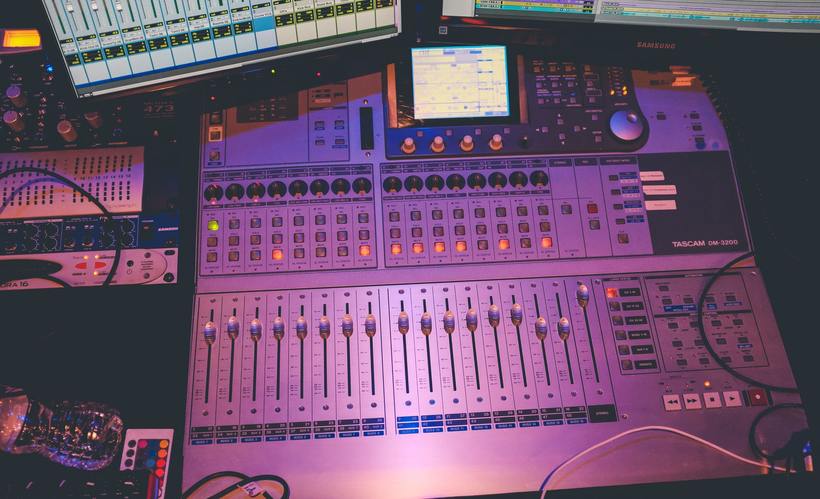
Do your research and be persistent
The way I got into being an engineer at a studio was relentless contact and luck. I sent out hundreds of emails and even went door to door with CVs. Which, at the time had zero credits or professional studio experience to mention, but I thought if I get to meet someone in person that works at the studio, I might make a good impression and they might hire me.
When I sent out emails, I always did my research too. I would find notable artists that had worked there I could mention, and crucially, who the studio manager was. Then I addressed the manager by name.
I was honest and said that I was willing to do whatever in order to get some experience. And I make a great cup of tea!
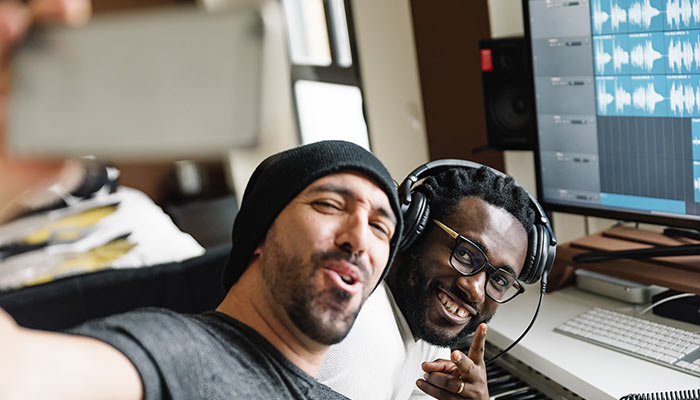
Make the most of every opportunity
I didn’t get many replies at all. But one I did get was for a studio in West London that asked me to come in for a brew and a catch-up. I was offered a three day a week unpaid internship. Which I obviously accepted. It wasn’t glamorous at all. I cleaned the toilets, fetched the lunch, made the tea, packed down the live room after sessions and did all the menial boring jobs that no one else wanted or had time to do.
But I was always helpful and had a smile on my face. Most days, I was the first one in and the last one to leave. All I could do was make the other engineers and the boss see that I was reliable and had initiative.
So reach out, be honest, be persistent and then, if you get a chance, make the most of it.
Find out more about our BA in Audio Engineering and Production.
Visit charlietmusic.com to find out more.
Great producers change the way the world listens
If you’re looking to turn heads with your unique production style, ICMP’s pioneering approach to music education will provide everything you need. Our Music Production students benefit from fully equipped Audient and SSL recording studios, Mac Labs, world-class gear and an exceptional team of tutors. Plus there are masterclasses, exclusive events, collaborative opportunities, and a curriculum that covers studio and live work, engineering, composition, advanced skills, business and professional development.
To completely immerse yourself in your music career, chat with our friendly Admissions Team via email enquiries@icmp.ac.uk or give them a call on 020 7328 0222.
Production Courses
If you’re looking to turn heads with your unique production style, ICMP’s pioneering approach to music education will provide everything you need. Our Music Production students benefit from fully equipped Audient and SSL recording studios, Mac Labs, world-class gear and an exceptional team of tutors. Plus there are masterclasses, exclusive events, collaborative opportunities, and a curriculum that covers studio and live work, engineering, composition, advanced skills, business and professional development.
To completely immerse yourself in your music career, chat with our friendly Admissions Team via email enquiries@icmp.ac.uk or give them a call on 020 7328 0222.




